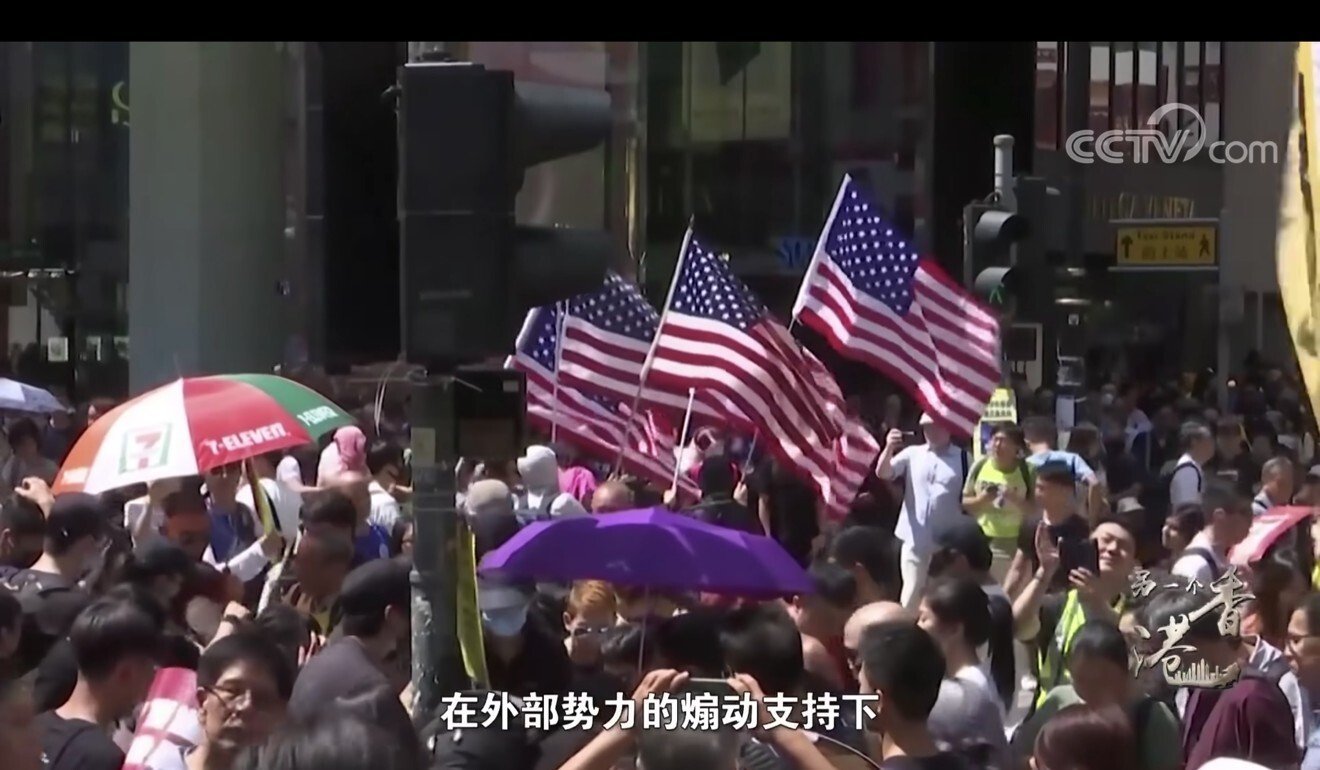Hong Kong News

Hong Kong watchdog dismisses union complaint over Chinese state TV portrayal
The communications watchdog has dismissed a complaint by the largest teachers’ union in Hong Kong that the Chinese state broadcaster wrongly accused the educators of promoting the city’s independence in a locally aired programme.
The 100,000-member Professional Teachers’ Union (PTU) urged the Communications Authority on Wednesday to review its decision, which marked the first time the watchdog had dealt with complaints about the impartiality of an imported programme broadcast in Hong Kong.
“We regret to hear about this ruling,” the union said. “We demand that the Communications Authority review its ruling and revisit the relevant justifications.”
It called on the watchdog to explain to the public the standards for the broadcast of imported programmes by local organisations.

The union, which represents about 85 per cent of teachers in the city, made the complaint in June over the documentary Another Hong Kong, which was produced by state broadcaster CCTV and shown on Now TV, TVB and i-Cable the month before. The watchdog received 1,904 complaints over the programme.
CCTV said the documentary focused on “Hong Kong under the shadow of black storm”, using the “voices of Hong Kong people and comments of experts” to explore the reasons behind the unrest.
The city was gripped by months of often violent protests that erupted in June last year over a now-abandoned extradition bill but which morphed into larger calls for political reform, among other demands.
The union said the programme distorted facts by wrongly accusing the PTU of supporting Hong Kong independence, inciting the education sector to protest in Victoria Park and advocating the “illegal Occupy Central movement”.
Protesters staged the Occupy campaign of civil disobedience in 2014 over a lack of progress in implementing universal suffrage for the legislative and chief executive elections. They blocked roads and brought parts of the city to a standstill for 79 days before police finally dispersed them.
“In fact, the PTU and former [education] legislator Ip Kin-yuen have openly voiced opposition to ‘Hong Kong independence’ many times. We also disagree with teachers instilling a particular political stance in students, including ‘Hong Kong independence’,” the union said.
It said it never incited students to take part in demonstrations and had only organised a peaceful protest in August last year by teachers in Chater Garden in Central, not Victoria Park in Causeway Bay. Its purpose in publishing materials about the Occupy movement was to give students a better grasp on controversial issues and develop their own opinions.
According to the union, the documentary breached Chapter 9 of the authority’s code of practice on television programme standards, which states broadcasters should make reasonable efforts to ensure the factual content of programmes is accurate and to avoid unfairness to individuals or organisations featured. Neither should viewers be misled.
The authority dismissed the complaint as “unjustified” on Tuesday. It said local residents might not be the targeted viewers of imported programmes so it was “unreasonable” and “unrealistic” to require Hong Kong broadcasters to ensure the productions fully complied with regulatory requirements.
“It was infeasible for local broadcasters to require suppliers of the acquired programmes to substantiate the factual accuracy of the broadcast materials, to reveal or verify their sources of information, to include alternative viewpoints, and to give those criticised an opportunity to respond,” it said.
The watchdog argued imported shows allowed a local audience to understand different perspectives from elsewhere in the world, and the programme provided “the views prevalent on last year’s social events in Hong Kong”.
Rigidly imposing local broadcasting rules on foreign programmes might deprive Hongkongers of a wider choice of content.
“Many foreign renowned media outlets usually have a specific stance about some matters,” it said.
“The programming choice of the Hong Kong audience would be greatly reduced if the rules on impartiality and fairness were enforced strictly on acquired factual programmes as it would discourage broadcasters from sourcing these programmes given the risk of breaching the TV programme code.”
However, the authority noted the three stations could have handled the matter better by explicitly noting the programme was produced by CCTV before it began.











